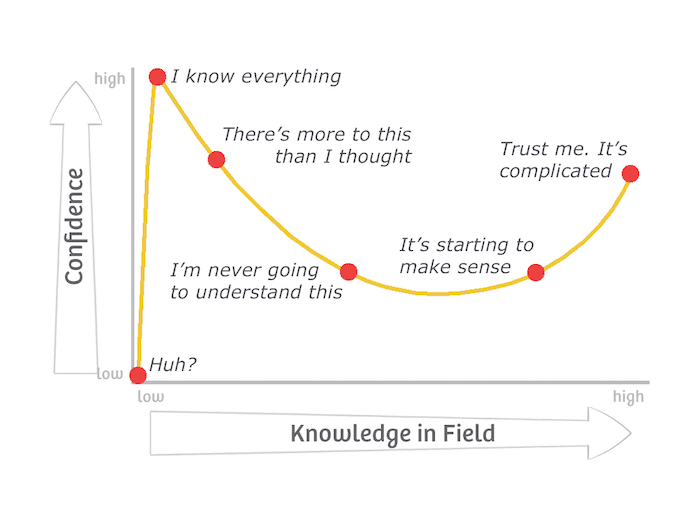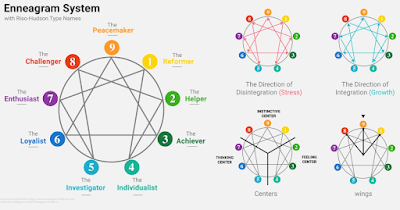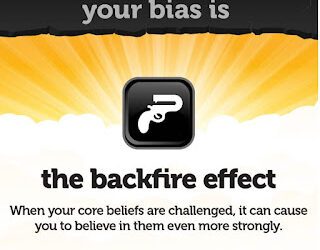
Christians have a reputation for being stupid. Anyone engaged in apologetics has probably been told (usually by someone in complete shock) that they’re the first intelligent Christian they’ve met. The charge that Christians are stupid also comes in related names such as anti-science, anti-intellectual, ignorant, uneducated, unintelligent, dumb, and any more. The point is that there are a lot of people who think Christians are intellectually inferior to the rest of society and the list below are things that will confirm that stereotype.
Whether this reputation about Christians is true is not the point of this article (but I do discuss this in my next one, Are Christians Dumb?). In this article, I’m not trying to argue about whether any of the beliefs below are right or wrong. All I want to do is point out that if you have any of the beliefs below, even the ones that seem completely unrelated to religion, it will negatively impact your evangelism and apologetics efforts.
For the sake of the gospel (1 Cor 9:23)
People make automatic judgments about others very quickly, often without conscious thought, and these perceptions are very hard to change. If I told you I believe in Santa Claus and you believed that I meant it, would you trust anything I tell you about God if you don’t already believe it? Certainly not! If anything, you might be less confident about your beliefs about the things that we agree on.
Granted, belief in Santa Claus is not like belief in God; however, some atheists do think that it is and many people would argue that some of the beliefs below are just as ridiculous as an adult believing in Santa. Again, this article isn’t about critiquing Christians, but being aware of how others see us. For more on how perceptions affect evangelism, check out my series on persuasive apologetics. The article on authority is particularly relevant to this article.
If you believe any of the things below, be aware of how ridiculous these beliefs sound to unbelievers and consider whether it is worth talking about with non-Christians or posting about publicly on social media (and the same goes for politics). If you think that discussing these topics might bring people closer to Christ, then it might be worth discussing with non-Christians.
Humility
In cases when we do decide to stand against the experts, humility is key. This isn’t a popular view among some Christians, especially those without actual expertise, but true experts (Ph.D. scholars in the relevant field, not a semi-related field), really do know what they’re talking about. They’ve studied the issue in way more depth than most people even know is possible. If it seems like they don’t know what they’re talking about, it’s almost certainly because of your ignorance, not theirs.

Getting information from reporters, news stories, blogs, pastors, theologians, or other Christian leaders does not make you an expert or even make you well-informed. To have a well-informed opinion, you need to read and understand the peer-reviewed articles on the topic. Real experts have read hundreds, if not thousands of them, depending on how broad the topic is.
In most cases when I talk to someone who holds beliefs contrary to expert consensus (think Jesus mythicism), they haven’t read any peer-reviewed academic work on the subject. In the rare cases that they have, they clearly didn’t understand it or they just cherry-picked a couple quotes or articles that support their view.
We as Christians can choose to hold ourselves to higher intellectual standards than the rest of society. If it’s really that important for you to hold a strong view in opposition to the experts, read, understand, and save relevant articles for and against your view so you can refer to them when the topic comes up. This way, if you have a discussion on the topic with someone who disagrees with you, you won’t sound like just another stupid Christians (obviously this is assuming you don’t get belligerent and yell the information at the person or overload them with a list of 50 articles they need to read 😀)
Here’s a list of several beliefs and practices that make people sound stupid (even though I think a small handful of them are actually true and/or good). This list is a result of talking to many intelligent non-Christians over the years, researching perceptions about Christians, my own formal education related to these topics, and some help from crowdsourcing. If you think of any others to add, please let me know. Additionally, I fully recognize that Christians may have their own list of things they think make unbelievers sound stupid, but that misses the point.

people believe about Christians
and other religious believers.
1. Denial that global warming/climate change is happening and humans are at least partially responsible.
2. Using and promoting the enneagram.
3. Visiting a chiropractor for illnesses or other treatments beyond their capacity.
4. Use of essential oils for medicinal purposes.
5. Putting amber beads on your children.
6. Being against vaccines.
7. Claiming that vaccines cause autism.
8. Rejecting evolution.
9. Belief in a young-earth.
10. Belief that GMOs are unhealthy.
11. Belief that contrails from planes are harmful chemtrails from the government.
12. Going on a fad diet techniques or products (detoxing, Thrive, Glutton-free (without having Celiacs), paleo, and many many others).
13. Believing bigfoot exists.
14. Belief in UFOs.
15. Thinking homeopathic remedies are generally effective.
16. Opposition to fluoridated water.
17. Believing in the accuracy of astrology/zodiac signs/horoscopes.
18. Claim organic food is healthier (as opposed to favoring it for environmental or moral reasons)
19. Belief that near-death experiences are the soul temporarily leaving the body.
20. Belief that reincarnation happens
21. Thinking that inanimate object, people, or animals are possessed by evil spirits
22. Belief that ghosts exist (and haunt places).
23. Thinking the earth is flat.
24. Using citronella to repel mosquitos.
25. Thinking the moon landing was a hoax.
26. Believing conspiracies about JFKs assassination.
27. Thinking that 9/11 was a government-orchestrated conspiracy.
28. Believing that a full moon affects behavior.
29. Using magnetic bracelets for healing.
30. Belief in psychics (not physics).
31. Belief in the Lochness Monster.
32. Saying (and believing) that sugar causes kids to be hyperactive.
Just to reiterate, believing these things does not mean you’re wrong or stupid. What it means is that your beliefs on these topics contradict what a large number of other people believe, particularly educated people and experts. Being aware of this can help you have humility, potentially reevaluate your beliefs, and more effectively interact with unbelievers.
References:
Clark, R. (2004). Religiousness, spirituality, and IQ: Are they linked. Explorations: An Undergraduate Research Journal, 1(1), 35-46.
Kanazawa, S. (2010). Why liberals and atheists are more intelligent. Social Psychology Quarterly, 73(1), 33-57.
Kinnaman, D., & Lyons, G. (2007). UnChristian: What a new generation really thinks about Christianity… and why it matters. Baker Books.
Lynn, R., Harvey, J., & Nyborg, H. (2009). Average intelligence predicts atheism rates across 137 nations. Intelligence, 37(1), 11-15.
Pennycook, G., Ross, R. M., Koehler, D. J., & Fugelsang, J. A. (2016). Atheists and agnostics are more reflective than religious believers: Four empirical studies and a meta-analysis. PloS one, 11(4), e0153039.
Stagnaro, M. N., Ross, R. M., Pennycook, G., & Rand, D. G. (2019). Cross-cultural support for a link between analytic thinking and disbelief in God: Evidence from India and the United Kingdom.



